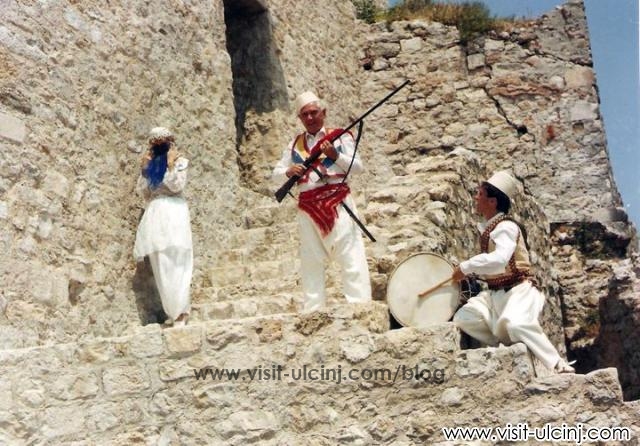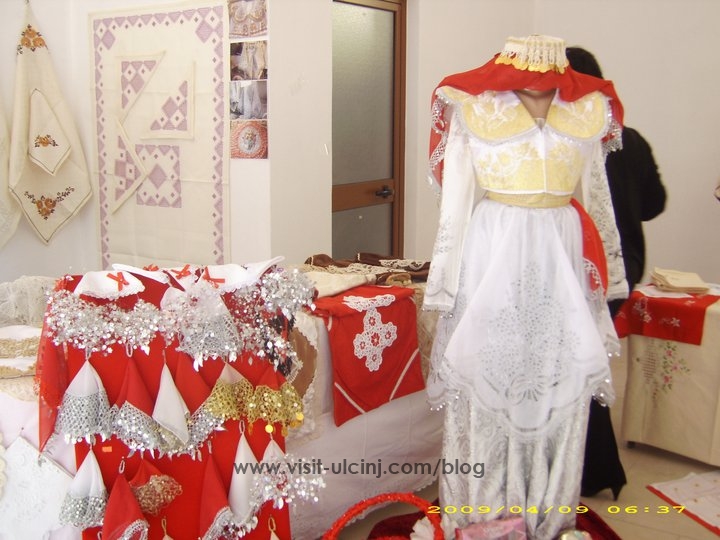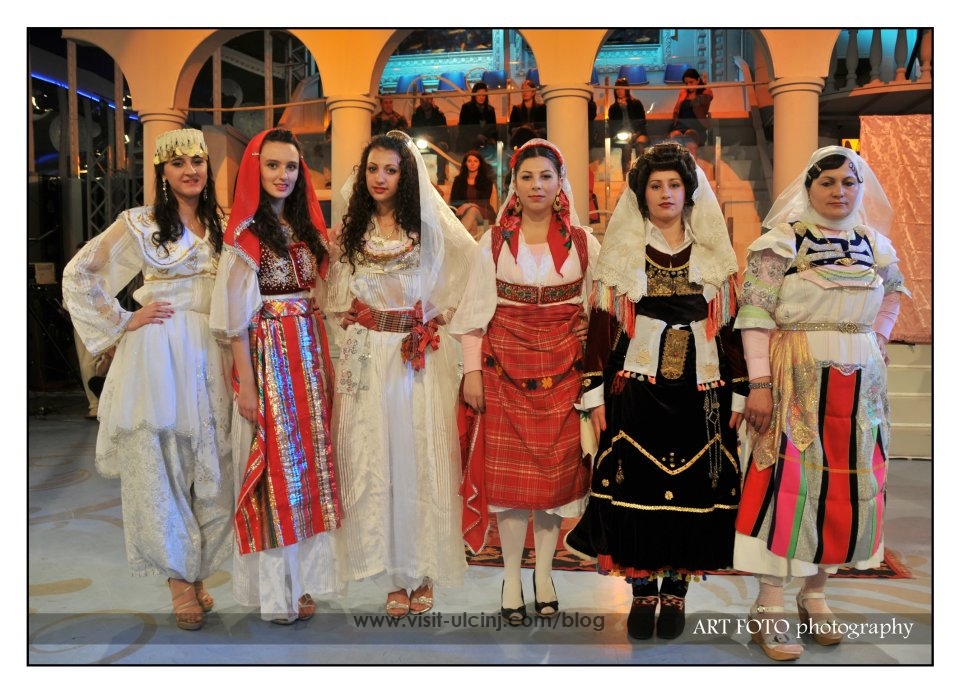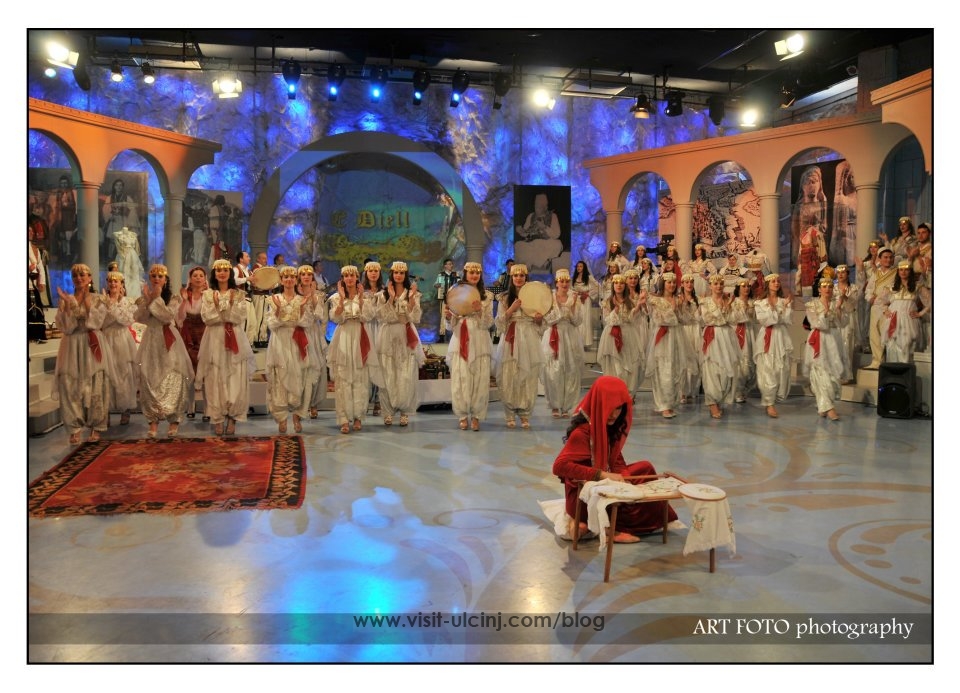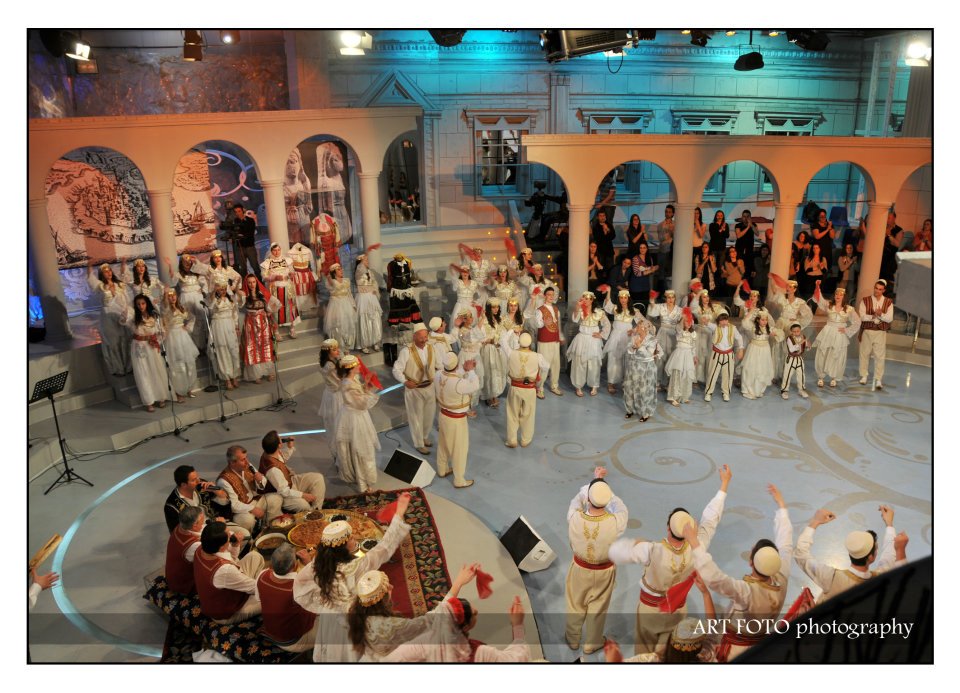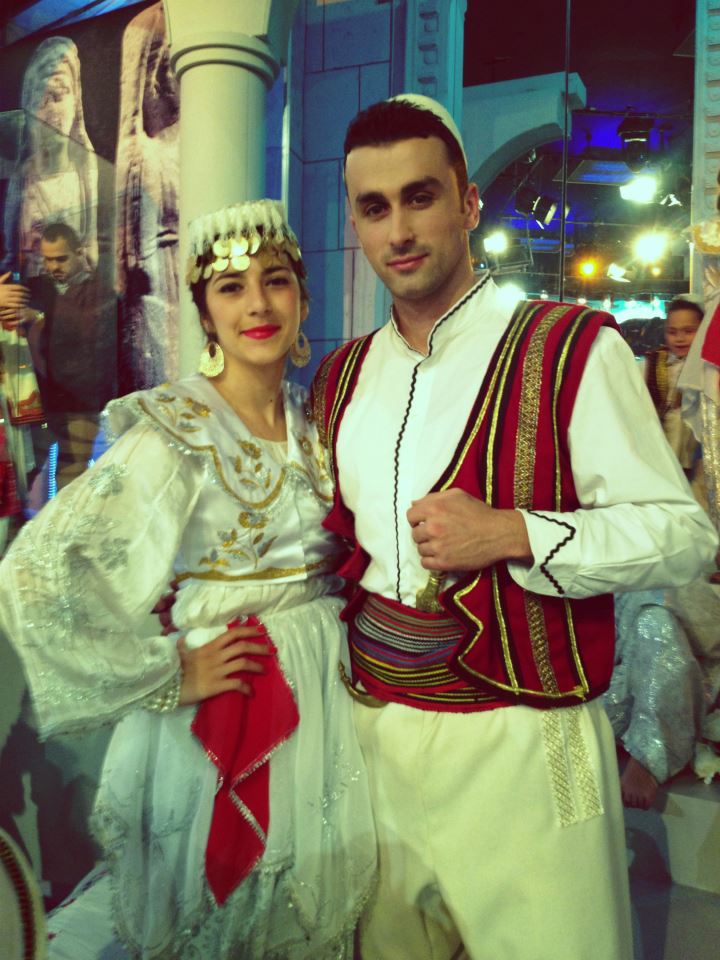Traditional Albanian Wedding in Ulcinj – Ulqin
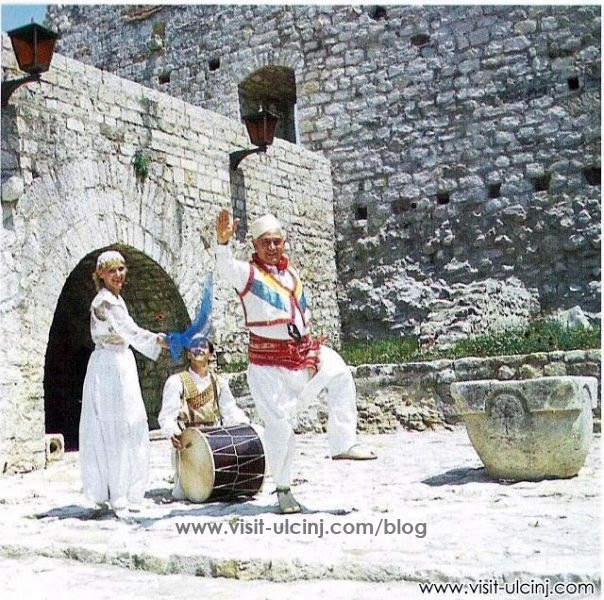
Translated by Aleksandar Gazivoda
After the suggestion of our respected readers from Ulqin we decided to start a cycle about ancient tradition and rituals about the most important life changes,such is wedding.We decided to start introducing this cycle from from city of Ulqin.
We will begin discovering the forgotten tradition of Ulqin weddings.
If you have any further suggestions please write to us so we could enrich together the cultural and traditional treasures.
The wedding, such an important event of uniting two people to create a family, is enriched among the centuries whit so many different rituals, but the past is always attractive.
The engagement in old times was done by arrangement, in knowledge between the tribes, families or friends. It was preferable to chose a wife or husband from good, respected, honorable and decent families, and from the same class, where every parent tried to chose the perfect spouse for his child from the class they belong. This was in general the most important characteristic of engaging in marriage .It was a rare fenomen where the spouses met each other without arrangement,but again the institute of arrangement had to be involved in front of the two families. There existed people who were recognized as expert for engagements. They were familiar with all families of the city and they tried to create a consistent relations between the youngster in search for partners. Those people went from one family to another, to talk about uniting the two youngsters, until the families agreed. Uncles were judgemental with their recommendations, for the marriages of their nephews.
There were no significant rituals in engagement. In the most cases these rituals were done between families and friends.
At the beginning ocured the “word giving” which includes the moment when an uncle of the groom went to the future brides family to ask for her hand.Usually this person had undenied authority.This person went to the future brides threshold where the father,brothers or uncles give the permission and the word for the brides hand.Intermaries of the groom 7 to 8 persons went to drink coffee in future bride’s house.The brides family returns the visit in the same maner.The ceremony was kept simple,including traditional sweets as “llokum”,coffee drinking and presents giving.After this ceremony they gave engagement symbol as is golden ring.The ring was brought by the groom but without seeing each other.And here to,were given the present for those who brought the ring.The engagement included presence of a Catholic priest or a Hoxha,depending on the familiys religion,which prayed for the wellbeing of the futures couple.The husband in most cases never sow the bride before the wedding day.
After the engagement,starts preparations for uniting the fiancés into the marriage.
Here egzisted rules that were respected in depending of which class the family belonged.Those traditions were different between the ritch class,the middle class or the poor clas,the village or the town.
The ritcher class prepared the gifts for their sons or drowl for their daughters.
The girls during their engagement or years before,with a small hand loom begun the preparation for their drowl.In those times everything was handmade by bride.This was a hard work for the brides and often those efforts were turned into legends and sung in folkloric songs.
The bride also prepared the bedroom,embroided all their clothes.The brides father buyed expensive things for their daughters.In the Ulqin it was the tradition that brides father to buy luxury things for his doughter,as for the tradinional wedding dress was bought and added a wery expensive part for brides head on which hung 100 golden napoleons which are called in local language “hilalek”.Than again,on the traditional wedding dress they put golden coins,usually Venedictian duchies,which stretched as much as three levels on the dress.After the clothing the brides shous were important,which musted been embroided and ornamented.
After the traditional clothing the drawl included modern European clothing,everyday skirts,shoes,jewelry,golden watches and parfumes.
It was told in Ulqin families that the brides father spent more for his doughter,than the future husband for the wedding.
This is also difference between which occurs in city or in a village.
Generaly the preferred month for wedding was September.Except the good wheather it has a profound simbolgy,because of a greater production in autumn,there all traditions interweave this with futures couple fertility.
These days when the bride is going to her husbands house the intermarries blow the hornes in their cars,but in old days the intermarries on their horses shot their guns.When the bride arrived in the husbands house she was set in a special part of room,where everyone camed to look at her and admire her beauty.On one side of the bride usually stands an uncle,while on the other side stands her brother.
On the Wednesdays the drawl was sent to the brides future house and her family drdrinked coffees,while the next day they camed back for the presents which provided the husbands family.On a Friday brides prepare a bachelor party,and wedding happens on Saturday,while feast begins on Sunday.
